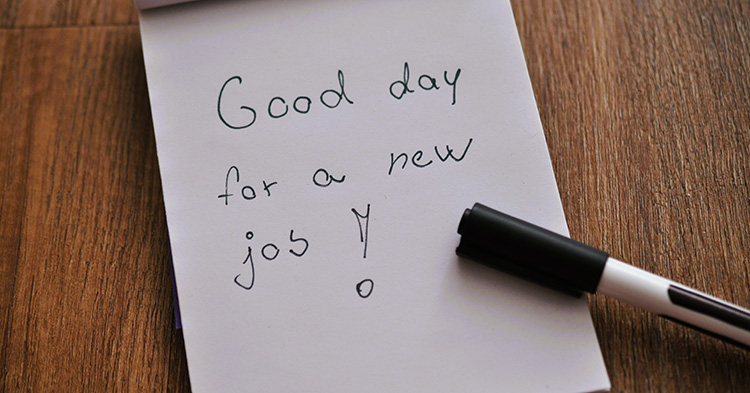January doesn't have to be hard: here's how to set up the best workflow for the start of 2025.
Following the festive celebrations, the return to routine in January can hit hard. For those who have been able to enjoy a long break, you might either be coming back reinvigorated and refreshed, or slowly emerging from a post-christmas daze.
Whichever category you fall into, here’s a list of the essential steps you should be taking in your first few days, to start 2025 on the right foot.

Prepare For Success
Let’s be honest: 2025 doesn’t really start until the 6th. Everything before then is just a warm-up to the first full week of the year. So whether you’re lucky enough to be off until Monday, or you’ve been back at work since Boxing Day, there’s still time to prepare yourself for a strong start.
Everyone has their preferred way of staying organised - making lists, using calendars, keeping post-its stuck to their computer screen. Whatever works for you, set it up afresh with all the basics included. This is not only to keep you organised, it will force you to think about all the day-to-day tasks you’ve not been considering for the last couple of weeks and get you back in the mindset for success.
As a bonus: putting together all your day-to-day tasks in one go is a great way to revise your processes, find efficiencies and combine tasks together for a more productive year.
Of course it’s not just the everyday tasks and new projects you need to prep for. There’s also:

Pick up on last year’s commitments
Before you dive into new projects, you need to refresh yourself on all the tasks you didn’t complete back in December. Be honest, how many times did you say “we’ll sort that in the new year”? Well now the new year is here and it’s time to deal with everything your past self put off.
So go over your emails, your notes, your voicenotes from last year and make a record of all the tasks you need to pick up on now. Then incorporate those into your new planner.

Reach out to clients and colleagues
If you’re in a client-facing role, start the year by reaching out to them, remind them that you’re available and your services can benefit them.
Remember that they’ll be in the same position as you, picking up on leftover tasks from last year, planning their targets for this year. Check in with them and find out what you can do to align your services with their goals.
Not in a client-facing role? Reach out to your team, to your colleagues, to your manager. Book some time in to catch up on plans for the year - compare your tasklist with theirs and work on ways you can support them and they can support you in achieving your goals.
In both situations, get some time in the calendar to catch up, review progress and agree timeframes on your goals.

Think about your own wellbeing
Everything we’ve talked about so far is about being ready and staying organised to manage your workload. This is not only beneficial for efficiency, but for mindset. Organisation helps you feel in control and helps you spread your workload so you’re not overwhelmed.
But there are many reasons that January becomes a difficult month for many people, so it’s important to think seriously about your own wellbeing at the start of the year. When you’re planning your workload, factor in time for wellness; whether that’s as simple as ensuring you’re keeping time free for miscellaneous tasks or incorporating mindfulness activities into your workflows.
Most importantly, don’t put too much pressure on yourself at the beginning of the year. Those of us who come into work with a “new year, new me” attitude can often push too hard to begin with, trying to achieve everything at once, changing work patterns and overcommitting.
As great as you may feel setting your new workflows and organising your tasks, if you’ve set yourself up with too much to begin with, you’ll quickly stop following your plans, or completely burnout.
So when prepping your workload, make sure you also think about how you can ease the pressure and not take too much on too quickly. With that in mind:

Set your new routine
So you’ve set out what you want to do, and you’ve factored in how you can manage the workload. Now it’s time to work out a regular routine.
The best way to stick to your plans is to build out a routine, so you know how each day is going to start, when you’re going to be covering the day-to-day tasks, what time you’ve set aside for bigger projects and how you can keep an achievable rhythm in your workload.
Again, incorporate your wellbeing into your new routines. Many people have new years resolutions that can be more easily kept to if they’re factored into your working day - such as allowing time for pre-work workouts or healthy lunches.

Plan your progression
Your plans and routines can help get you back on track and set up for your immediate work commitments, but maintaining long term success means looking into the future and setting some goals.
New year is a great time to do this, setting yourself timeframes for your bigger goals. Where do you want to be next year and what do you need to do to get there?
Looking ahead means you can start setting out the smaller steps that it will take to get there immediately - factor those into your plans for what you’ll be doing over the next few weeks and months.
Progression looks different to everyone and for some that can be setting targets or starting training at the beginning of the year. For others it might involve looking beyond your current role for a new opportunity in 2025. If you are looking for a new job this year, it pays to work with a specialist recruitment and staffing business who can help you find and secure the right role in your sector.

Find Your Next Job With Amoria Bond
Amoria Bond’s staffing experts specialise in roles within Technology, Advanced Engineering and Energy. We help skilled professionals in these areas secure their next jobs with global market leaders, helping you take your next career step and progress your life.
Discover our latest job vacancies, or get in touch with our staffing specialists to learn more about our current opportunities within our core sectors.






